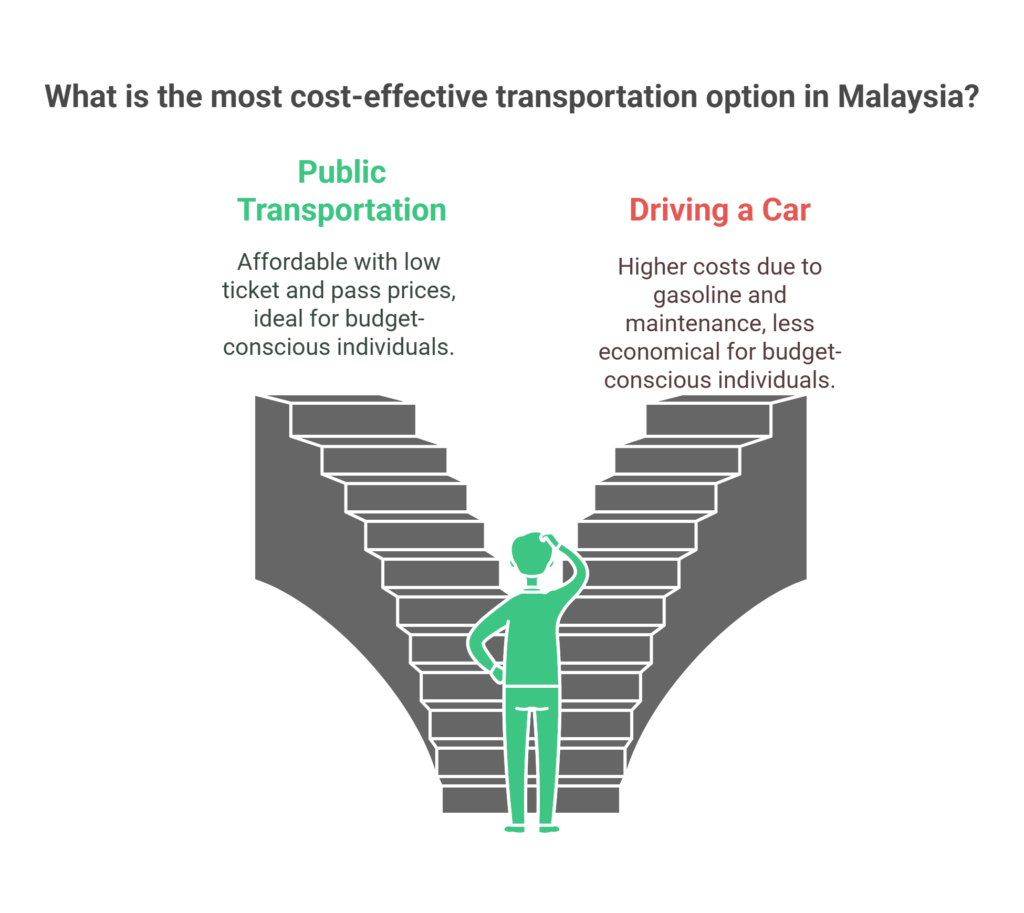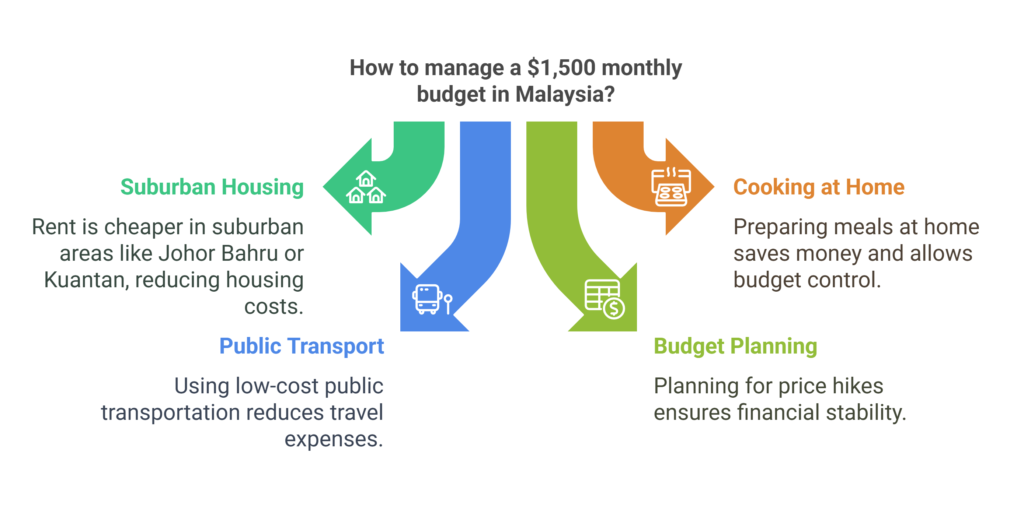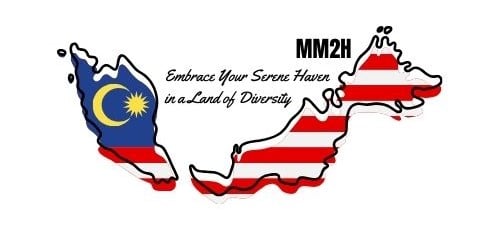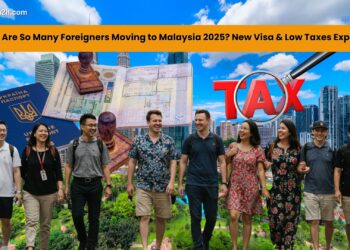Living on $1500 a Month in Malaysia: Is It Possible in 2025?
When considering affordable living in Southeast Asia, Malaysia stands out as a favorite destination for digital nomads, expats, and retirees. But with rising global costs, can you still live comfortably on a budget of $1,500 per month in 2025? This article explores the cost of living in Malaysia, focusing on monthly budgets, housing, utilities, food, and transportation while also factoring in Malaysian economic policies and regional variations.
Currency Conversion and Monthly Budget Overview
In 2025, $1,500 USD is approximately RM6,700. While this budget allows a single person to cover essential expenses and even save, it can be more challenging for families.
The average monthly costs in Malaysia vary:
- Single individual: RM4,847 without rent
- Family of four: RM10,332 without rent
For singles, living within this budget is achievable. Families, however, may need to make significant adjustments to fit within $1,500 monthly for discretionary spending after covering rent and essentials.
Housing Costs in Malaysia
Accommodation is the largest expense, but Malaysia offers options to suit various budgets.
- Urban Areas (Kuala Lumpur):
A one-bedroom apartment in KL’s city center averages RM1,566 monthly, while outside the center, rent drops to RM1,132. - Suburban and Smaller Cities (Penang, Johor Bahru):
In places like Penang or Johor Bahru, housing costs are lower, with some units available under RM1,000. Cities in Malaysia, such as Kuala Lumpur and Penang, offer modern amenities, but choosing suburban areas reduces living costs significantly.
Shared housing or rural accommodations further minimize expenses for those looking to maintain a lower cost lifestyle.
Utilities and Internet
Utilities in Malaysia remain affordable even in cities like Kuala Lumpur or George Town. Monthly bills for electricity, water, and garbage disposal average RM214 for small apartments. Internet services (unlimited data, 60 Mbps or higher) cost RM115.
In total, utilities and internet typically cost less than RM330, which is a manageable portion of a monthly budget within $1,500.
Transportation Costs
Public transport is efficient and affordable across Malaysia, including KL and cities like Malacca.
- Public Transportation:
A one-way ticket on local transport costs RM3, while a monthly pass is just RM50. For expats or Malaysians who live outside Kuala Lumpur, public transportation remains a low-cost option. - Driving in Malaysia:
While owning a car is convenient, gasoline costs RM7.77 per gallon. Owning a car increases expenses, including maintenance, making public transport the smarter choice for budget-conscious individuals.

Food and Dining
Food in Malaysia is not just diverse but also much more affordable compared to western countries or even neighboring nations like Singapore.
- Eating Out:
A meal at an inexpensive restaurant costs around RM15, while a three-course meal for two at a mid-range restaurant averages RM100. - Grocery Costs:
Shopping at supermarkets or local markets for fresh produce and staples like rice and noodles helps keep living expenses manageable. Imported goods are pricier, but buying local ensures affordability.
Whether dining out or cooking at home, you can live comfortably while experiencing Malaysian cuisine within a $1,500 monthly budget.
Lifestyle Choices and Regional Variations
Your ability to live on $1,500 monthly also depends on where and how you choose to live in Malaysia.
- Urban Lifestyle (Kuala Lumpur):
If you live in Kuala Lumpur, proximity to dining, shopping, and entertainment can increase expenses. - Suburban or Rural Areas (Penang, Kedah, Malacca):
Regions like Penang, Kedah, and Malacca provide a slower-paced lifestyle and lower costs. Living in cities like Penang and Kuala Lumpur offers the best of both worlds: affordability in some areas while maintaining access to modern amenities.
Balancing your location and lifestyle choices ensures you can stick to your monthly budget while enjoying life in Malaysia.
Government Policies and Economic Outlook in Malaysia in 2024
As Malaysia in 2024 transitions into 2025, the Malaysian government is implementing new policies to address fiscal challenges. Subsidy rationalizations and tax reforms may increase the cost of living in Malaysia.
Inflation rates have been manageable—around 2.0% in 2024—but adjustments to subsidies for essentials like fuel and utilities could lead to higher living costs. Expats who don’t plan ahead may feel the pinch, especially in cities like Kuala Lumpur.
Monitoring these changes and maintaining a flexible monthly budget are key to navigating economic shifts.
Budgeting Tools and Resources
To help manage costs, the Malaysian government introduced the Belanjawanku guide. This resource outlines typical living expenses for different lifestyles, helping locals and expats alike create sustainable monthly budgets.
Whether you’re living in Kuala Lumpur, Johor Bahru, or George Town, using this guide can ensure that your budget aligns with your lifestyle while considering changes in inflation and living costs.
Is $1500 a month in Malaysia enough for a Family?
For families, living on $1,500 monthly for discretionary spending is challenging but not impossible. Key strategies include:
- Choosing Suburban Housing: Rent in areas like Johor Bahru or Kuantan is significantly cheaper.
- Cooking at Home: Avoiding expensive restaurants saves money while allowing you to control your budget.
- Using Public Transport: Instead of driving, take advantage of low-cost public transportation.
- Planning Ahead: Adjusting your monthly budget for potential price hikes ensures financial stability.

Conclusion: Can You Live on $1,500 a Month in Malaysia in 2025?
For a single person, living on $1,500 per month in Malaysia is very feasible. The cost of living in Malaysia, particularly outside major cities, allows room for saving or spending on leisure. However, for families, sticking to this budget requires careful planning and lifestyle adjustments.
Whether you’re an expat, a digital nomad, or someone seeking to retire, Malaysia offers a high standard of living at a relatively low cost compared to Singapore or Thailand. By choosing the right location, taking advantage of local markets, and using tools like Belanjawanku, you can thrive within your budget.




